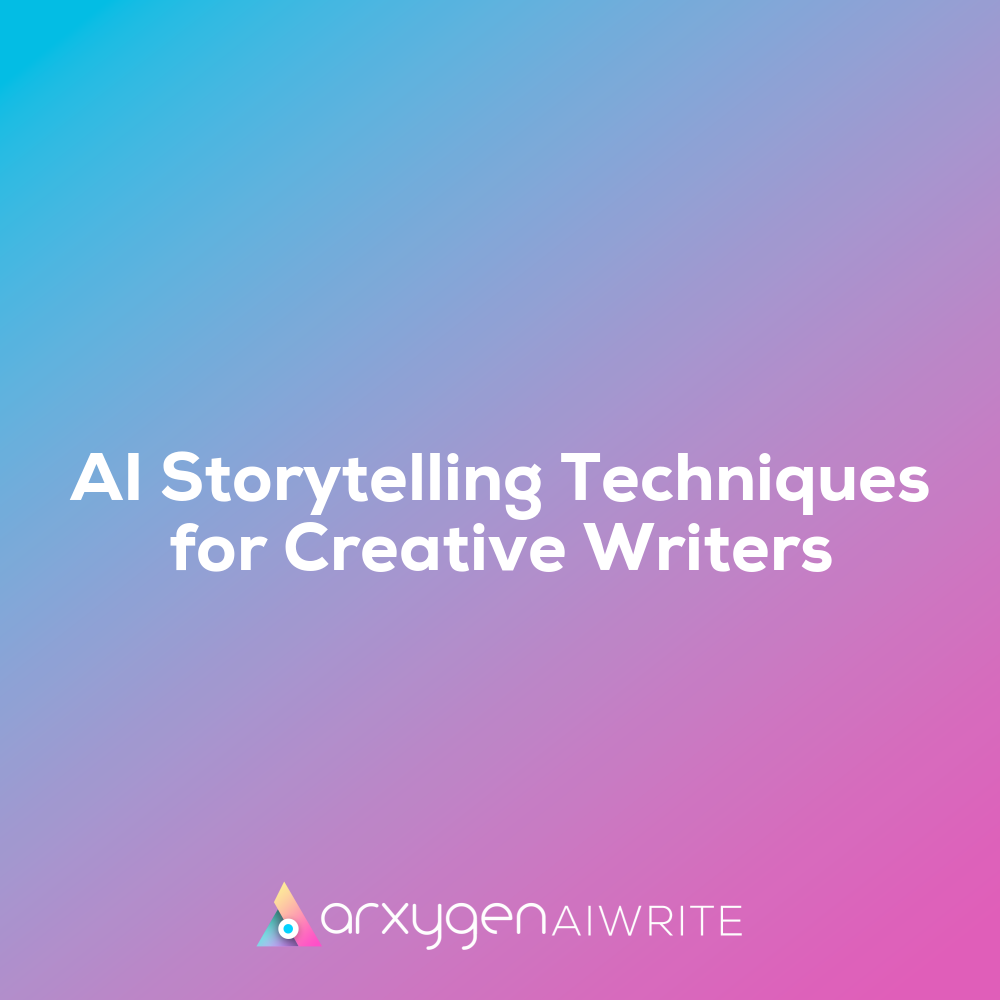Utilising AI to Refine Narrative Techniques for Writers
Within storytelling, AI emerges as a powerful ally for writers aiming to enhance their craft. By analysing successful narratives, AI can pinpoint key elements that resonate with audiences, offering tailored suggestions for improvement. For instance, it can identify pacing issues or suggest more engaging plot twists based on data from popular works. This analytical capability not only streamlines the revision process but also fosters a deeper understanding of narrative structures.
Moreover, AI tools are proving invaluable in character development and plot structuring. Writers can leverage these technologies to create multidimensional characters that feel authentic and relatable. By inputting character traits and motivations, AI can propose backstories or potential conflicts that enrich the narrative arc. This collaborative approach allows writers to explore new avenues for their stories, ensuring that every character serves a purpose in the overarching plot.
Enhancing Creativity with AI Insights
Furthermore, as writers experiment with different genres or styles, AI can provide genre-specific guidelines that help maintain coherence while pushing creative boundaries. This guidance is particularly beneficial for those venturing into unfamiliar territory, allowing them to innovate while adhering to established conventions. Ultimately, the integration of AI into the writing process not only elevates storytelling but also empowers writers to take risks and explore their creative potential.
Utilising AI for Enhanced World-Building in Creative Writing
In the realm of creative writing, artificial intelligence has emerged as a powerful ally, particularly in crafting immersive settings and intricate backstories. Writers can leverage AI tools to generate vivid descriptions of landscapes, cultures, and environments that captivate readers’ imaginations. For instance, an AI can suggest unique geographical features or societal structures that might not have been considered, enriching the narrative tapestry. Moreover, AI excels at creating consistent lore by ensuring that the details remain coherent throughout the story. This consistency is vital; it allows authors to weave complex histories and character motivations seamlessly into their plots. By tapping into AI’s capabilities, writers can develop intricate details that enhance the depth of their stories, making them resonate more profoundly with audiences.
Exploring the Synergy Between Creative Writers and Artificial Intelligence
As the landscape of storytelling evolves, the potential for AI to serve as a creative partner is becoming increasingly apparent. Writers can leverage AI’s capabilities to brainstorm ideas, develop characters, and even construct intricate plots that may not have emerged in isolation. However, this collaboration raises important ethical questions; for instance, how do we maintain authenticity in a narrative when AI contributes significantly to its creation? It’s essential to consider the implications of relying on algorithms that can inadvertently replicate biases present in training data. Furthermore, the challenge of intellectual property rights looms large, as writers grapple with the ownership of content co-created with AI. Ultimately, while AI can enhance the writing process by providing fresh perspectives, it is crucial for authors to navigate these ethical waters carefully, ensuring that their unique voice remains at the forefront of their storytelling.
“As writers leverage AI’s capabilities, they must navigate the delicate balance between innovation and authenticity in their storytelling.”

